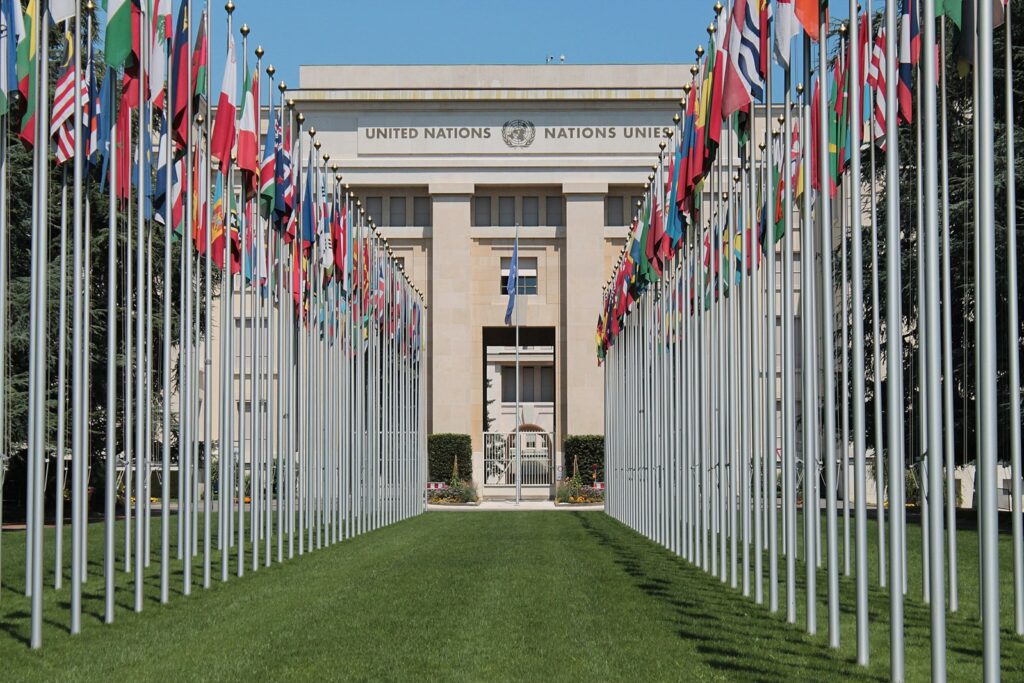Nuclear deterrence is becoming increasingly prevalent in conflict rhetoric. During conflicts, situations are frequently described as ‘on the brink of nuclear catastrophe.’ Meanwhile, the voices of those who have lived through the horrors of nuclear weapons are fading.
Survivors of the atomic bombings in Hiroshima and Nagasaki, known as hibakusha, are making one final, urgent plea: eliminate nuclear weapons before it’s too late. It’s up to us to decide how seriously we take their messages — and whether they will lead to real change.
I had the privilege of being part of the first-ever cohort of young leaders advocating for a world without nuclear weapons alongside the hibakusha. I had the opportunity to hear their stories first-hand. As they grow older and their numbers decrease, preserving their stories is essential to ensure future generations never forget the truth about nuclear weapons.
Shohei Tsuiki, 84, was 18 years old when the bomb fell on Nagasaki. He had been working at a Mitsubishi factory and was asleep in the dormitory when the explosion tore through the city.
“I thought a bomb had fallen in the room next to the dormitory,” he recalls, detailing the confusion and terror as he tried to find his bearings in the pitch-black room. Bleeding and burned, he joined friends in a shelter already filled with injured people. "It was like hell," he remembers, echoing the experiences of many other survivors.
Shohei’s injuries left him bedridden for two months and impacted his health for years. But even as he recovered physically, the psychological effects remained. His message to the world is clear: “It is said today there are enough nuclear weapons prepared to make one million Nagasaki atomic bombs. As long as nuclear weapons exist, the world cannot truly be called peaceful. I want young people to understand this reality and convey it to the world.”
Today, Shohei’s words feel more relevant than ever. In the event of nuclear war, the world’s current nuclear stockpiles are more than enough to cause catastrophe, potentially ending civilization as we know it. Despite this, world leaders argue these weapons provide security through deterrence, a notion the hibakusha vehemently reject.
Belief in nuclear deterrence as a path to peace is already one of humanity’s greatest ever mistakes. The idea we can avoid war by threatening to annihilate each other is both morally bankrupt and dangerous. Shohei and other hibakusha know firsthand the existence of these weapons brings the constant risk of catastrophe, whether through accident, miscalculation, or deliberate use.
Mr. Tsuiki puts his finger on the problem at the crux of the nuclear deterrence argument: it prevents nuclear weapons from going away. “I don't think true peace will come unless [nuclear weapons are] ultimately abolished. I believe the first step to eliminating nuclear weapons from the world is for global public opinion to shift to support the abolition of nuclear weapons.”
Deterrence as a strategy
Nuclear deterrence has already failed comprehensively as a strategy for the prevention of war. Deterrence assumes a limited number of states possessing nuclear weapons maintains a balance of power. However, as more countries acquire such weapons over time, that stability becomes more difficult to maintain.
Moreover, as deterrence depends on rational decision-making, any human error, miscommunication or technical failure might result in a nuclear catastrophe. One only has to look at the Stanislav Petrov incident to see how close we have already come.
To make matters worse, the nuclear deterrent is ineffective against non-state actors like terrorist groups who cannot be easily threatened with retaliation. Delaying a ban on nuclear weapons indefinitely only increases the likelihood of them falling into the wrong hands.
While it may be challenging to convince nuclear powers to give up their weapons, the first step is raising public awareness. Advocacy and public pressure will follow, building momentum for the cause. Just as we have seen with climate action, we need a global movement for nuclear disarmament and peace. Both issues pose immense threats to security.
By mobilising public opinion and amplifying the voices of the hibakusha, we can begin to create the conditions necessary for meaningful progress toward a nuclear-free world. Hibakusha's stories are not merely an echo of a forgotten past. They are a message for the future.
World leaders and policymakers must urgently commit to concrete steps toward nuclear disarmament, including the signing and ratification of the Treaty on the Prohibition of Nuclear Weapons (TPNW), reducing nuclear stockpiles, and increasing international cooperation for non-proliferation.


